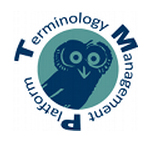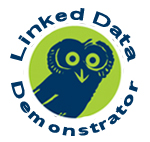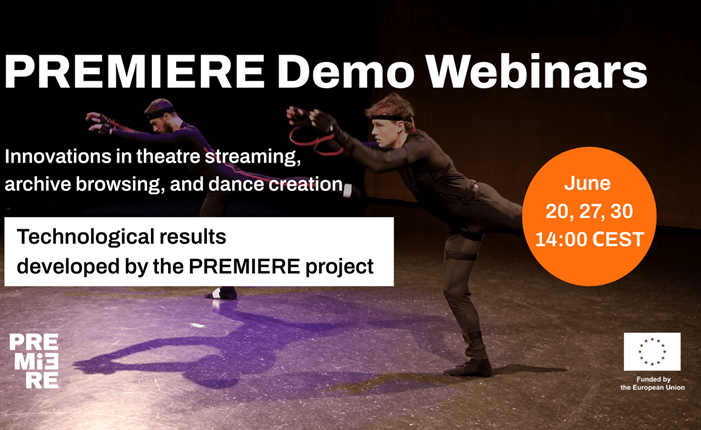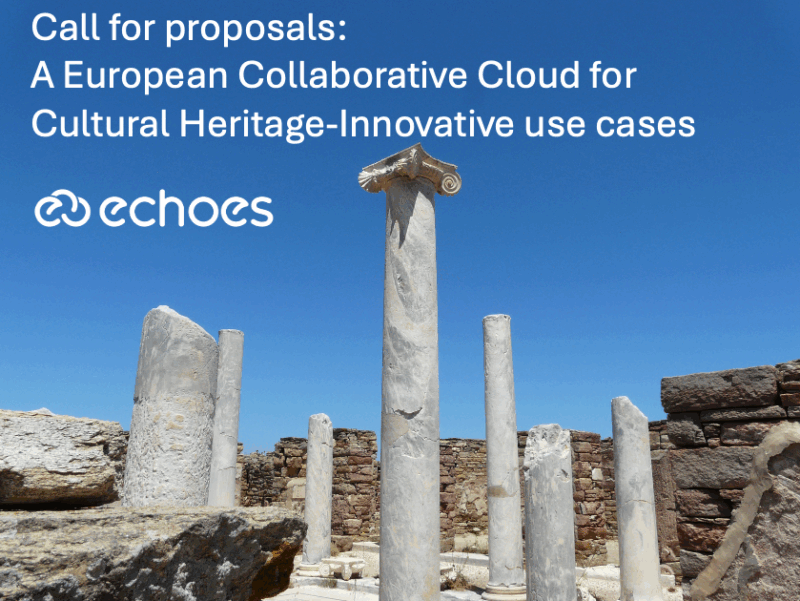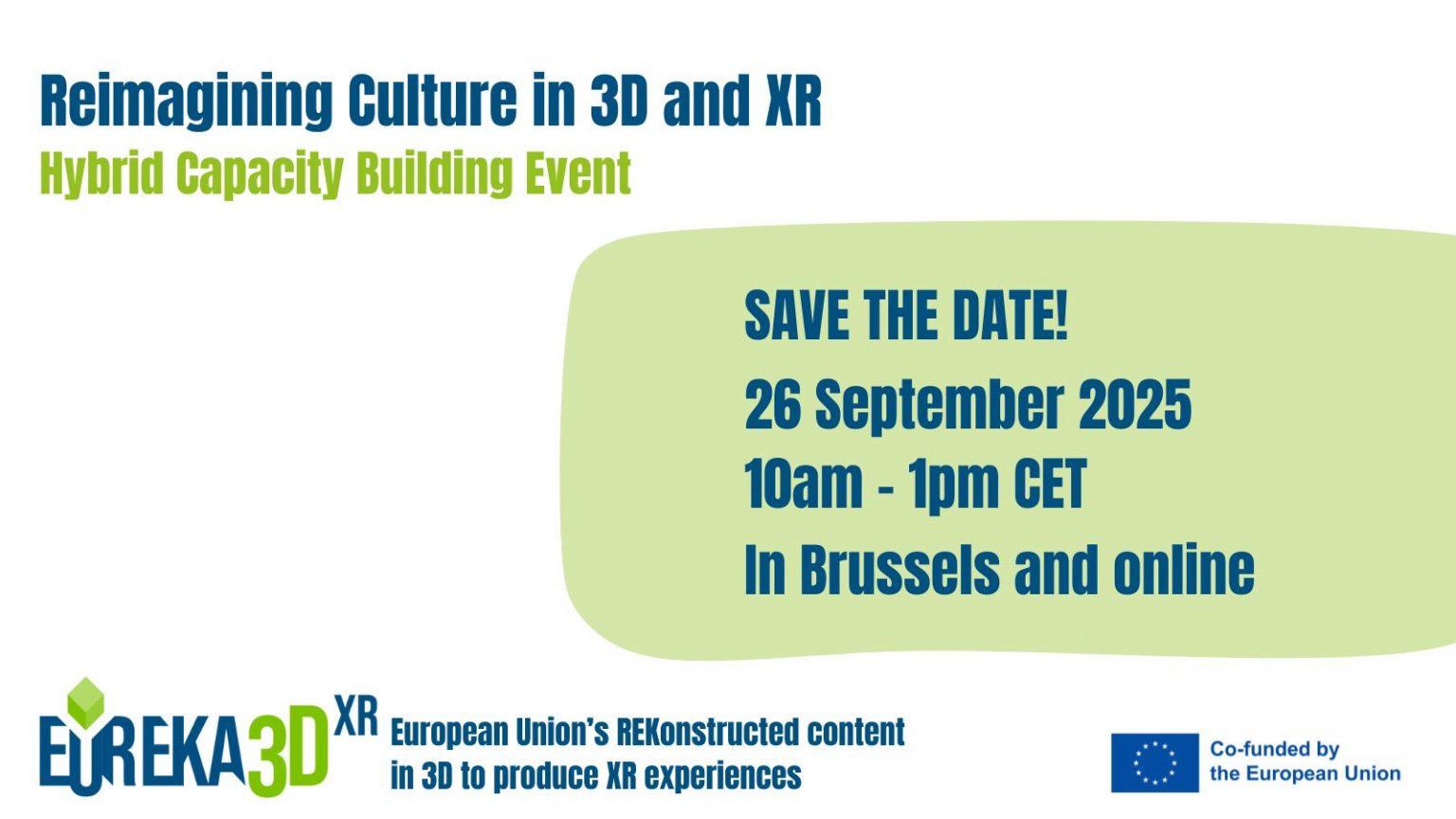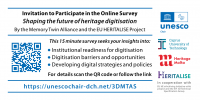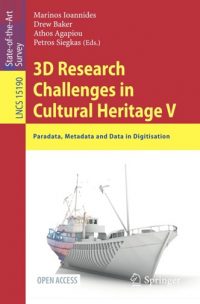-
Join the
Digital Meets Culture
Open Newsroom! If you have interesting news and events to point out in the field of digital cultural heritage, we are waiting for your contribution.
If you have interesting news and events to point out in the field of digital cultural heritage, we are waiting for your contribution.
-
Free text
-
-
Upcoming events
-
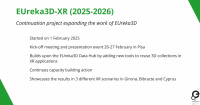 On the projects scope, results, and future plans
On the projects scope, results, and future plansDuring this year’s important event of Europeana Aggregators Forum (9-10 April 2025), Valentina Bachi from Photoconsortium delivered a presentation on both EUreka3D and EUreka3D-XR projects. The presentation went through EUreka3D project’s achievements with the developing of the EUreka3D Data … Continue reading →
 The collections feature 3D models digitised in the context of the EUreka3D project
The collections feature 3D models digitised in the context of the EUreka3D projectExplore two new source collections on Historiana, the online multimedia tool co-funded by the European Union that provides teachers with innovative, interactive resources to bring history to life and engage students. These collections feature 3D models digitised through the … Continue reading →
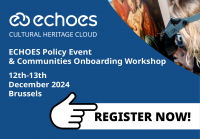 Brussels or online, December 12 - 13, 2024
Brussels or online, December 12 - 13, 2024The ECHOES Project Policy Event “Toward the Cultural Heritage Cloud” and the workshop “Onboarding communities into the Cultural Heritage Cloud” will take place in Brussels and online on 12 – 13 December 2024 and will officially launch the European Collaborative … Continue reading →
|
PRESENTATION OF THE PROJECT
|
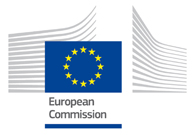
|

Linked Heritage is a 30 month EU project, started on 1st April 2011. Linked Heritage has 3 main objectives: I) to contribute large quantities of new content to Europeana, from both the public and private sectors; II) to demonstrate enhancement… Continue reading →
Linked Heritage Third Plenary Meeting and WP Technical meetings
Linked Heritage plenary meeting in Dublin
The digital cultural heritage towards Horizon 2020
Linked Heritage training programme
Linking Cultural Heritage Information
Improved search and higher-quality metadata through terminology management
Coordinator: Rossella Caffo
Technical Coordinator: Antonella Fresa
Project website: www.linkedheritage.org
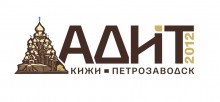
The annual conference ADIT that has been held since 1997 is one of the key All-Russian activities on promotion of information technologies among museums and other cultural institutions that facilitates the development of museums and exchange of regional experience. Continue reading →
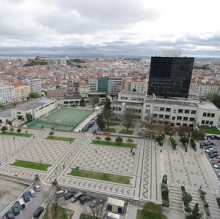
Lisbon hosts the Linked Heritage Third Plenary Meeting and WP Technical meetings. Linked Heritage is a 30 month EU project, started on 1st April 2011. The Plenary represents an interesting and useful meeting to know the state of the art of the project and to plan the activities for the next months. The meeting is organized by Instituto Superior Técnico (Portugal). Continue reading →
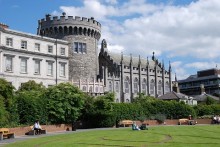
The Linked Heritage project (a 30 months Best Practice Network project founded by the EC) now draws to the end of its life and in Dublin the partners will have the possibility to discuss the latest commitments in view of … Continue reading →
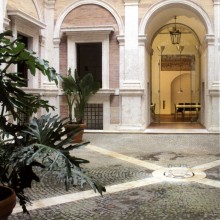
The event was divided in two sessions; the first one was dedicated to the policy, highlighting the decisions by Italian Government and Parliament related to the central role of culture for the economic recovery in Italy, and also in Europe. The second session was dedicated to the digital content Aggregators and to the research infrastructures in the sector of SSH (Social Science and Humanities) and cultural heritage, to share objectives and to develop a common, operative roadmap for digitization. Continue reading →
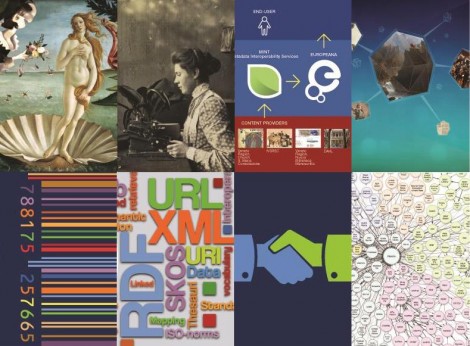
The Learning Objects, developed in the frame of Linked Heritage, range from Europeana to aggregation, metadata standards, linked data, terminology, etc.) and address an identified shortage of awareness of these important topics. Continue reading →

Linked Heritage demonstrated the publication of Linked Data to the digital cultural heritage community, including the establishment of a linked data server which delivers our metadata as linked data triples. To identify the most effective way for the cultural heritage sector to create, manage and apply permanent identifiers. Continue reading →
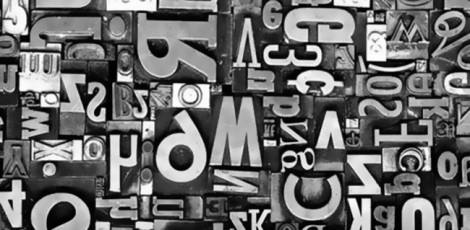
Different organisations and different languages use different terms to describe similar concepts. Incompatible terminologies impede effective searching by end users and are also an obstacle for web services that rely on consistent metadata. Linked Heritage aimed to address this challenge by standardising terminologies. Continue reading →


